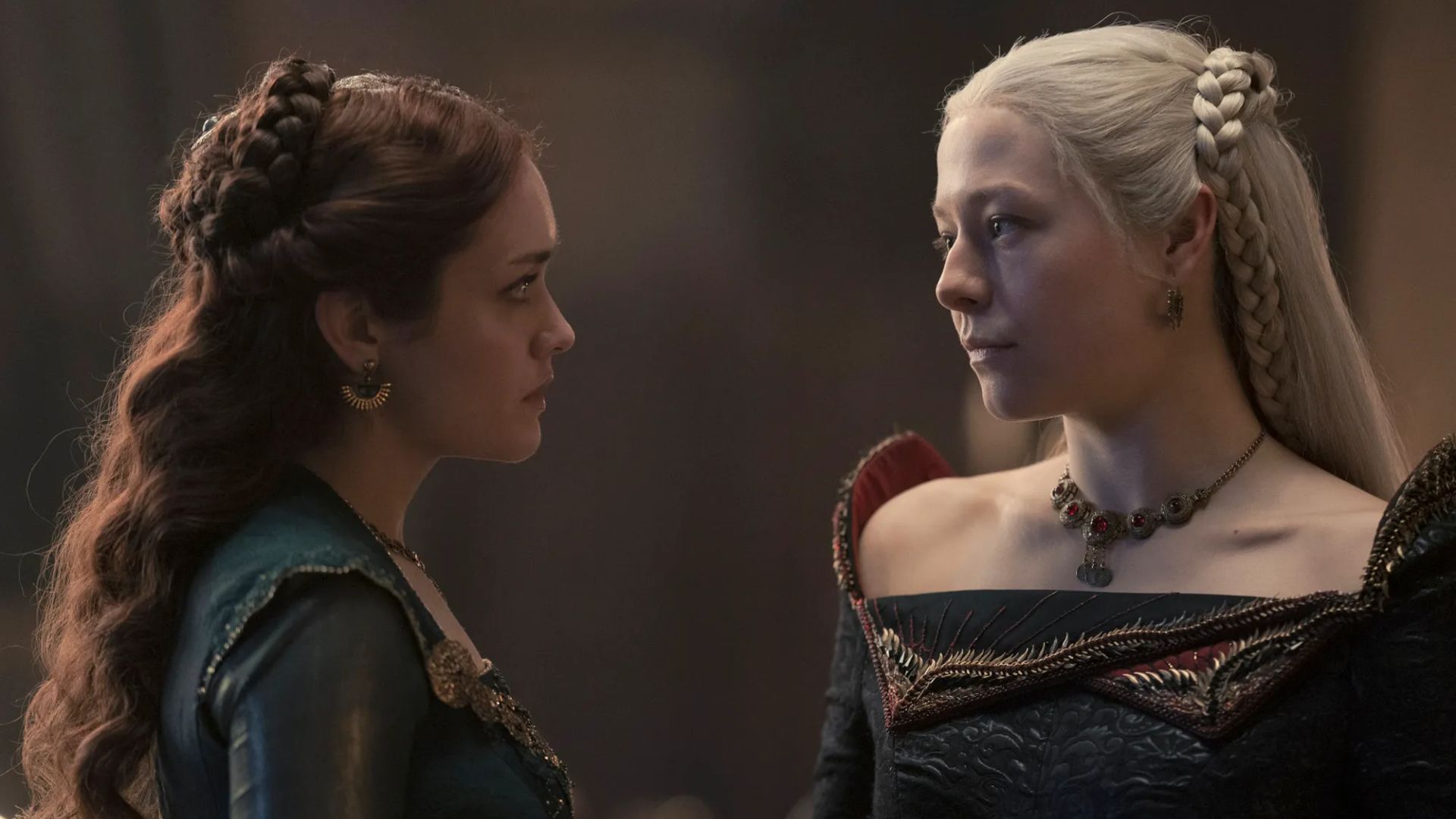When dragons go to war, the emotional toll is especially heavy on the women in “House of the Dragon.” The second season shows how women in Westeros, a kingdom with strict gender roles, suffer the most from grief and pain. These women are forced to bear huge emotional burdens during times of personal and political chaos.
Queen Helaena, portrayed by Phia Saban, faces a traumatic ordeal when she is forced to identify her son Jaehaerys as an assassin, leading to his brutal execution. This act of retribution for the death of an enemy family’s son leaves Helaena devastated and traumatized.
Her mother, the Dowager Queen Alicent, played by Olivia Cooke, mourns the loss and the impact on her daughter, reflecting the deep emotional wounds inflicted by the ongoing conflict.
The series explores how these women’s grief is manipulated for political gain. Otto Hightower, Alicent’s father, and Hand of the King, proposes a public funeral procession for Jaehaerys to sway public opinion against their rival, Rhaenyra.

This spectacle forces Alicent and Helaena to publicly display their mourning, emphasizing the gendered expectations of emotional labor in Westerosi society. Otto’s insistence on using their sorrow to garner sympathy illustrates the systemic exploitation of female grief.
Grief in “House of the Dragon” underscores the stark gender divide in Westeros. Rhaenyra’s position as Viserys’ named female heir fuels the infighting and discontent that lead to the Dance of the Dragons. The series repeatedly shows women being called to serve publicly, even as they grapple with personal loss.
This expectation to endure and perform their grief contrasts sharply with the emotional privileges afforded to men, who can often retreat from public displays of sorrow.
The funeral procession scene vividly captures the public exploitation of female grief. Helaena and Alicent, clad in funeral veils, endure the spectacle as the smallfolk express their condolences. This public mourning, orchestrated by men in power, highlights the societal expectation for women to outwardly display their sorrow while their internal pain is sidelined.
The procession becomes a tool for political manipulation, reflecting the pervasive gendered dynamics in Westerosi society.
Aegon’s assumption that Rhaenyra is behind Jaehaerys’ murder further exemplifies the gendered tensions. Despite Rhaenyra’s own grief over her son Lucerys’ death, it is her husband Daemon who orchestrates the killing of Jaehaerys. This misattribution of blame reinforces the series’ focus on gender normativity, showcasing how women are often unjustly held responsible for actions driven by male counterparts.
The complex relationship between Aegon and Helaena, who are both siblings and spouses, adds another layer to the depiction of grief. A brief interaction between them suggests a shared understanding of pain, yet it falls short of genuine empathy. This lack of deep emotional connection between grieving individuals underscores the isolation and emotional constraints imposed by their societal roles.
In parallel, Rhaenyra’s own experience of grief highlights the double standards faced by women in power. Her response to accusations and her husband Daemon’s demands for action show the pressure on her to balance personal sorrow with political duty.
Rhaenyra’s absence during a crucial moment is criticized by Daemon, yet her cousin Rhaenys defends her, explaining the necessity of her grief. This dynamic reveals the broader expectation for women to maintain visibility and political acumen even in the face of profound personal loss.
Ultimately, “House of the Dragon” portrays a society where women’s grief is weaponized for political purposes, preventing genuine healing or reconciliation.
This manipulation of female emotions perpetuates the cycle of conflict and suffering. As Rhaenyra reflects on the destructive potential of long-repressed female grief, the series alludes to the catastrophic consequences that can arise when women’s emotions are exploited rather than respected.


